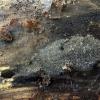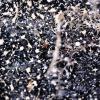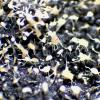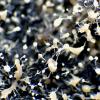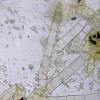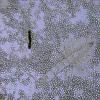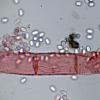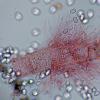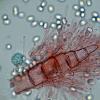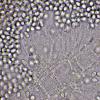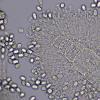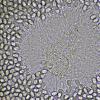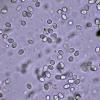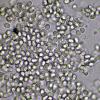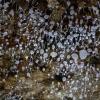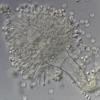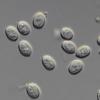
20-01-2026 17:49
 Hardware Tony
Hardware Tony
I offer this collection as a possibility only as e

15-01-2026 15:55
 Lothar Krieglsteiner
Lothar Krieglsteiner
this one is especially interesting for me because

17-01-2026 19:35
Arnold BüschlenHallo, ich suche zu Cosmospora aurantiicola Lite

16-01-2026 00:45
Ethan CrensonHi all, On decorticated hardwood from a New York

18-01-2026 12:24
Hello.An anamorph located on the surface of a thin

08-12-2025 17:37
 Lothar Krieglsteiner
Lothar Krieglsteiner
20.6.25, on branch of Abies infected and thickened
Help with some synnemata.
Josep Torres,
12-06-2025 08:58
Some synnemata sprouting in a scattered but abundant manner on the surface of a trunk lying on the ground, an indeterminate broadleaf tree. The area was predominantly home to hazel (Corylus) and oak (Quercus), sharing the space with abundant specimens of Mollisia, probably lividofusca.
Synnemas were 0.4 to 0.5 mm tall and 0.15 to 0.30 mm wide at the fertile part, although this width is due to several synnemas joining together to form a common gelatinous mass of conidia.
Branched conidiogeneous hyphae, covered with warts over their entire surface, with a fairly uniform width of 22.5 to 24 microns. These hyphae terminate in the conidiophore, highly septate and with a pointed end. Conidia are short, cylindrical, and ellipsoidal, thick-walled, hyaline, and measure in water:
(5.4) 5.8 - 6.6 (6.9) × (3.9) 4 - 4.6 (4.8) µm
Q = (1.2) 1.4 - 1.6 ; N = 40
Me = 6.3 × 4.3 µm ; Qe = 1.5
Given their characteristics, I'm thinking of Stilbella or related genera, but I haven't been able to find any reasonably convincing proposals in the Keys.
Any feedback from you would be welcome.
Thank you in advance.
Best regards.
Adam Polhorský,
12-06-2025 14:58
Josep Torres,
12-06-2025 21:30
Re : Help with some synnemata.
Thanks, Adam, for your help.
It fits perfectly, so it looks like Gloiosphaera clerciana.
Best regards,
Josep.
It fits perfectly, so it looks like Gloiosphaera clerciana.
Best regards,
Josep.


